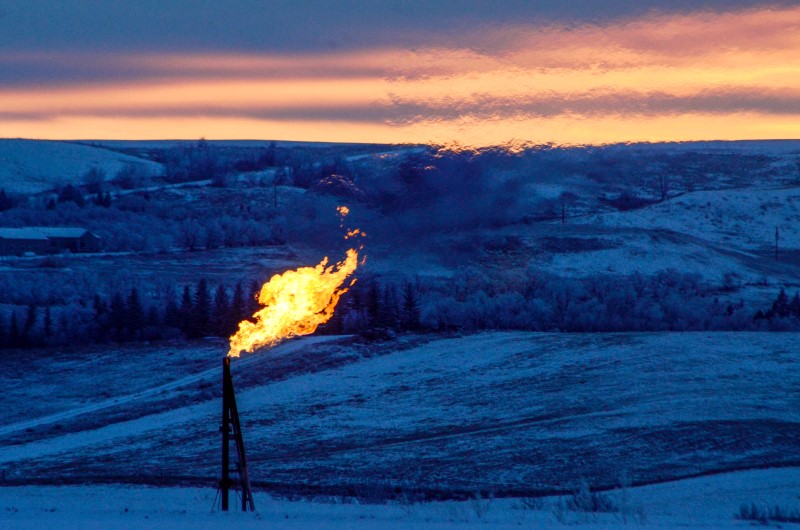By Gwladys Fouche
OSLO (Reuters) - Norway's $1-trillion (£0.75 trillion) sovereign wealth fund may take five years to reduce its investments in energy companies even once the policy is adopted, the fund's CEO said on Tuesday.
The world's largest sovereign wealth fund this month proposed dropping oil and gas companies from its benchmark equity index, which would mean cutting its investments in such businesses over time.
The aim is to lessen the impact of a permanent drop in oil prices on the Norwegian government's wealth, especially when the fund is increasing its exposure to equities to 70 percent of its value from 60 percent. The news hit energy stocks when announced..
The proposal, if adopted, would however take time.
It must first be reviewed by the finance ministry, which has said it would come back with its opinion in autumn 2018. If the ministry backs the proposal, parliament could vote on it only in June 2019 at the earliest.
From that point, there will be another few years before the fund completes the process, said fund CEO Yngve Slyngstad.
"Typically our transition period will be two, three, five years, depending on the issue," he told reporters on Tuesday. "The fund will be invested in oil stocks for many years."
Still, if it does go ahead, the fund would divest billions of dollars from oil and gas stocks, as defined by the FTSE oil and gas reference index.
These stocks represent 6 percent - or around $37 billion - of the fund's benchmark equity index.
"It will clearly reduce the exposure to the (oil and gas) sector and we will potentially exit the sector," said Slyngstad.
OIL PRICE IMPACT
The fund invests Norway's revenues from oil and gas production for future generations, investing in equities, bonds and real estate abroad. Its size is equivalent to $192,000 for every Norwegian man, woman and child.
The fund's analysis shows there is a link between the oil price level and the return from oil and gas stocks, a link that is much more pronounced than for any other sector.
Slyngstad reiterated on Tuesday the proposal did not reflect a particular view of future movement in oil prices or the profitability or sustainability of the oil and gas sector.
It is purely based on financial arguments and as a way to reduce the exposure to oil of the Norwegian state's wealth, which has grown over the past decade, he said.
Norway has its own separate exposure to the energy market through untapped offshore hydrocarbon reserves as Western Europe's largest oil and gas producer.
In addition, Norway holds a 67-percent stake in the national oil company, Statoil (OL:STL).
Slyngstad said there would still be opportunities to invest as companies undergo an "energy transition" to less fossil-fuel-intensive models.
"Most investors would say we will be in an energy transition for the next 30 years and that energy transition will have opportunities for investors," he said.
